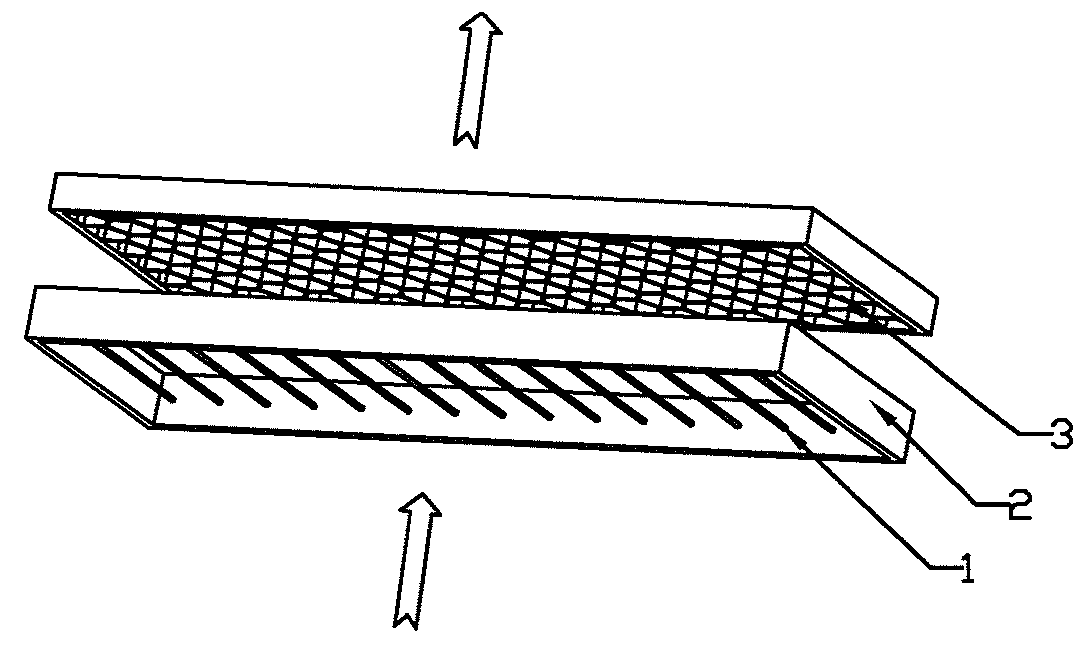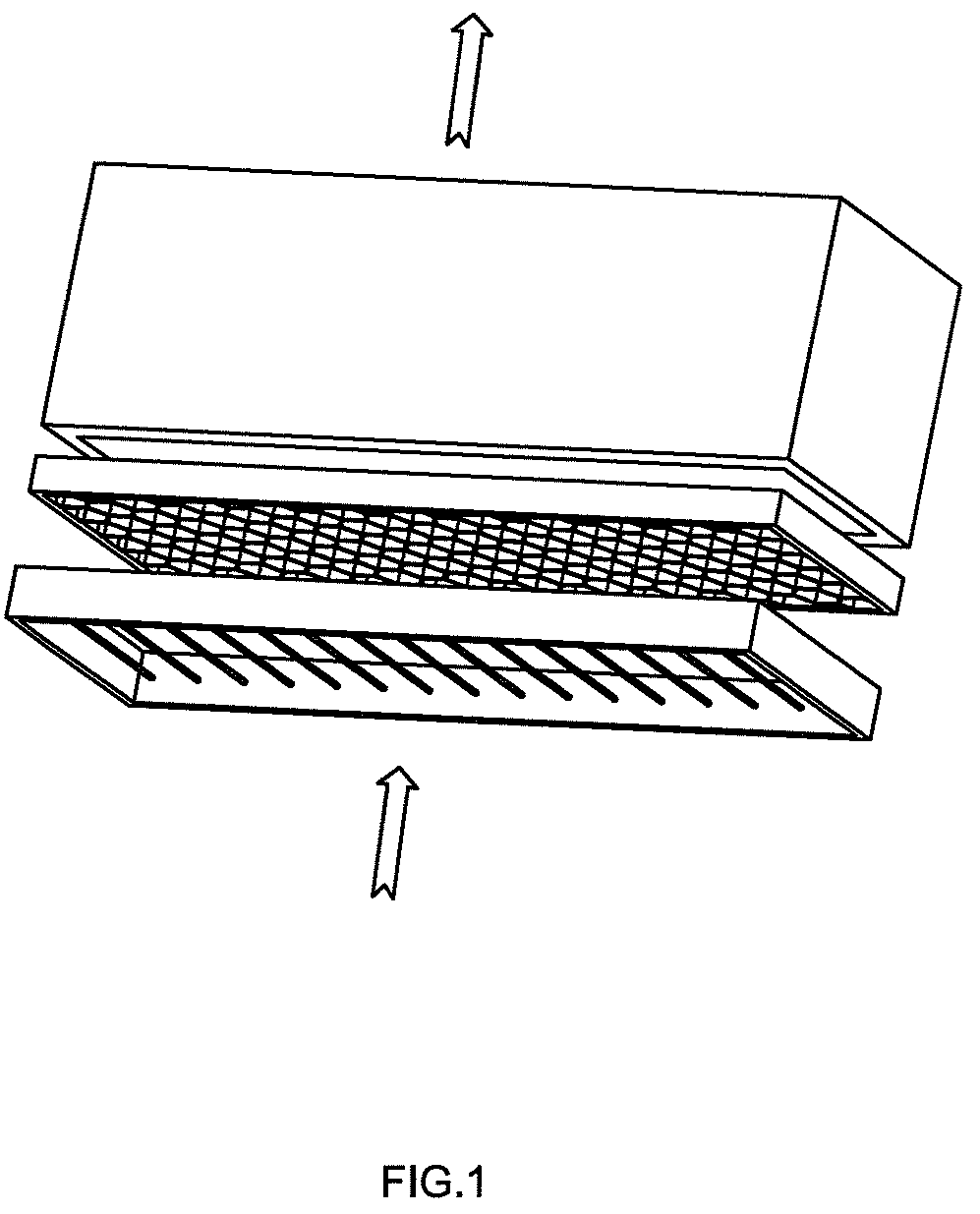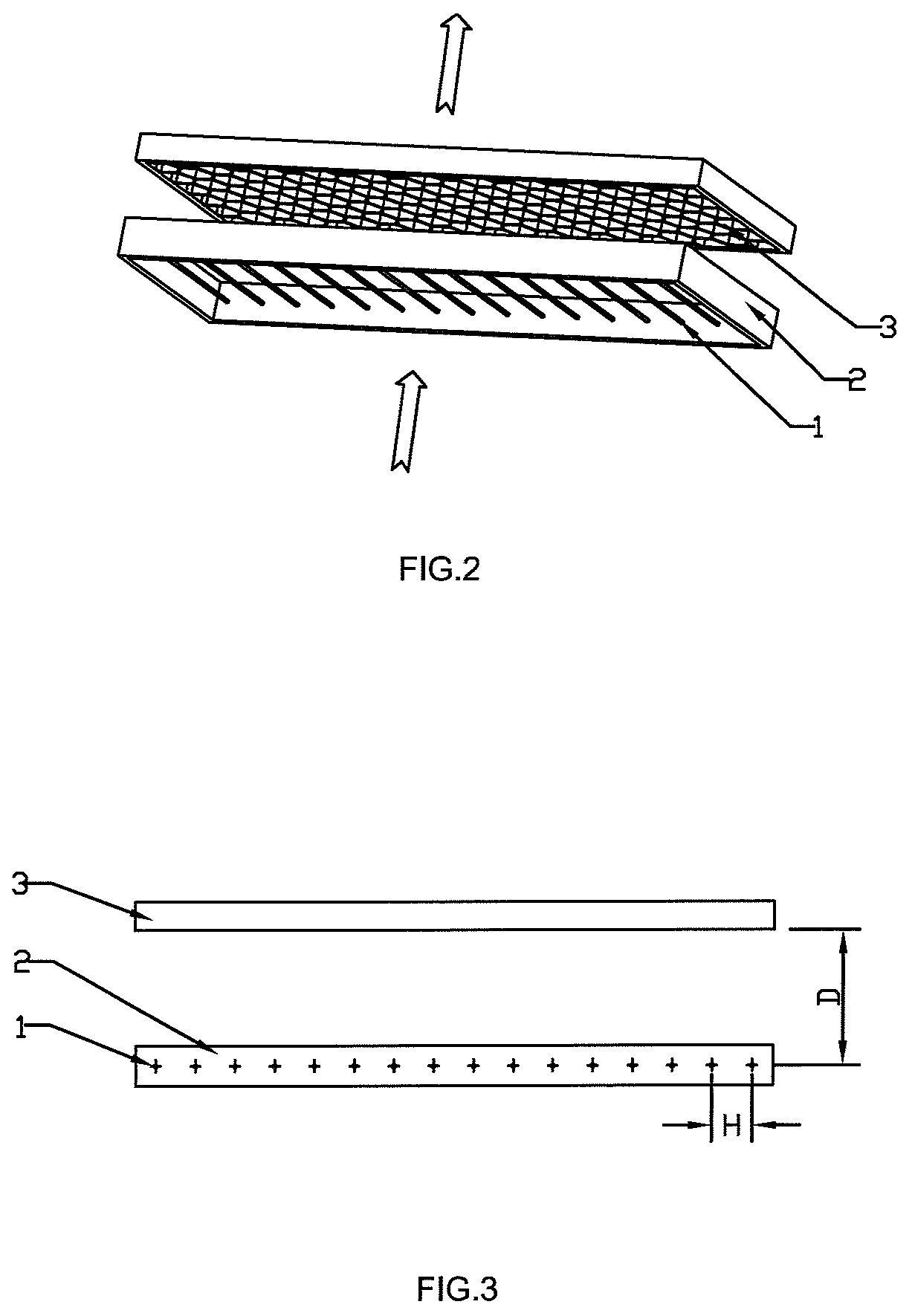Electrostatic Dust Collector
a dust collector and electrostatic technology, applied in electrostatic separation, solid separation, chemical instruments and processes, etc., can solve the problems of insufficient charge of dust particles, low efficiency of prior art electrostatic dust collectors, and low applied voltage in dust charging section, so as to speed up the effect of accelerating the movement of charged dust particles and reducing the effect of dust collecting area
- Summary
- Abstract
- Description
- Claims
- Application Information
AI Technical Summary
Benefits of technology
Problems solved by technology
Method used
Image
Examples
Embodiment Construction
[0018]FIG. 1 shows one embodiment of the present invention applied in an air purifier, wherein said electrostatic dust collector comprises a dust charging section and a dust collecting section. And air flows vertically to said dust charging section and dust collecting section.
[0019]As shown in FIGS. 2 and 3, said dust charging section comprises: a plurality of tungsten discharge wires 1 which are disposed on an insulating planar frame 2, and a counter-electrode made up of an aluminum honeycomb net 3. Tungsten discharge wires 1 are paralleled disposed at an equal distance, and the plane formed by tungsten discharge wires 1 is parallel to the aluminum honeycomb net 3. The ratio of the distance H between tungsten discharge wires 1 to the discharge passage width D (the distance between the tungsten discharge wires and the aluminum honeycomb net) is in the range of H=(0.8˜1.2) D. The corona voltage applied between the tungsten discharge wires 1 and the aluminum honeycomb net 3 is above o...
PUM
| Property | Measurement | Unit |
|---|---|---|
| sizes | aaaaa | aaaaa |
| distance | aaaaa | aaaaa |
| corona voltage | aaaaa | aaaaa |
Abstract
Description
Claims
Application Information
 Login to View More
Login to View More - R&D
- Intellectual Property
- Life Sciences
- Materials
- Tech Scout
- Unparalleled Data Quality
- Higher Quality Content
- 60% Fewer Hallucinations
Browse by: Latest US Patents, China's latest patents, Technical Efficacy Thesaurus, Application Domain, Technology Topic, Popular Technical Reports.
© 2025 PatSnap. All rights reserved.Legal|Privacy policy|Modern Slavery Act Transparency Statement|Sitemap|About US| Contact US: help@patsnap.com



